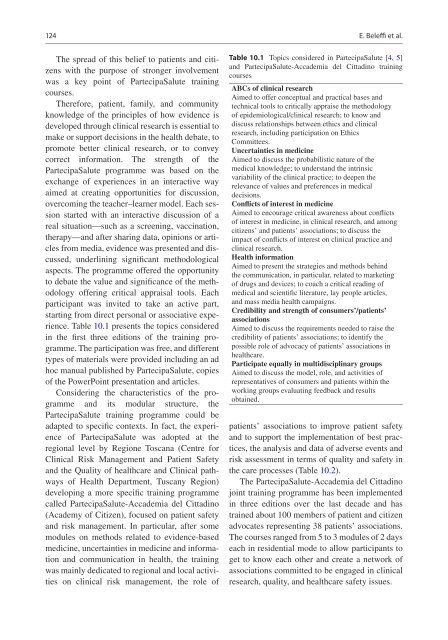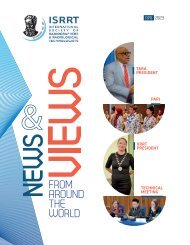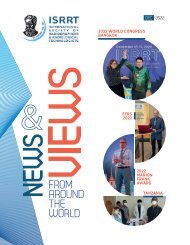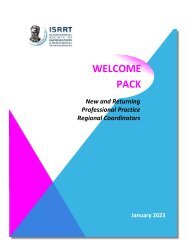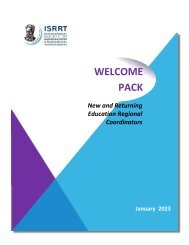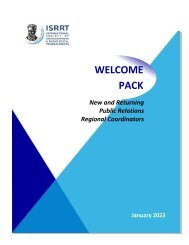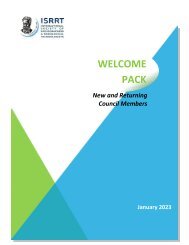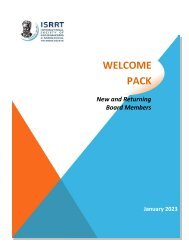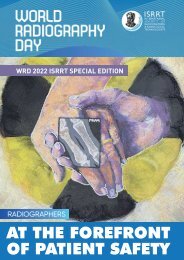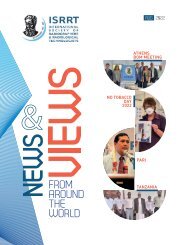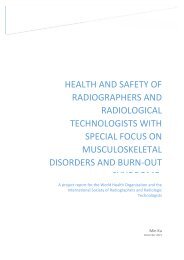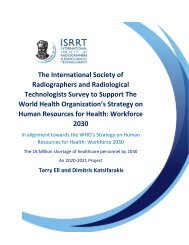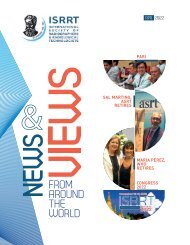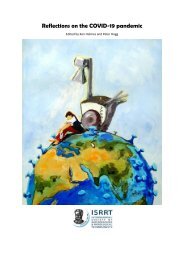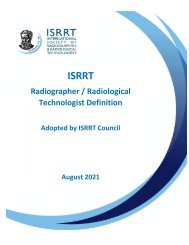2021_Book_TextbookOfPatientSafetyAndClin
You also want an ePaper? Increase the reach of your titles
YUMPU automatically turns print PDFs into web optimized ePapers that Google loves.
124<br />
The spread of this belief to patients and citizens<br />
with the purpose of stronger involvement<br />
was a key point of PartecipaSalute training<br />
courses.<br />
Therefore, patient, family, and community<br />
knowledge of the principles of how evidence is<br />
developed through clinical research is essential to<br />
make or support decisions in the health debate, to<br />
promote better clinical research, or to convey<br />
correct information. The strength of the<br />
PartecipaSalute programme was based on the<br />
exchange of experiences in an interactive way<br />
aimed at creating opportunities for discussion,<br />
overcoming the teacher–learner model. Each session<br />
started with an interactive discussion of a<br />
real situation—such as a screening, vaccination,<br />
therapy—and after sharing data, opinions or articles<br />
from media, evidence was presented and discussed,<br />
underlining significant methodological<br />
aspects. The programme offered the opportunity<br />
to debate the value and significance of the methodology<br />
offering critical appraisal tools. Each<br />
participant was invited to take an active part,<br />
starting from direct personal or associative experience.<br />
Table 10.1 presents the topics considered<br />
in the first three editions of the training programme.<br />
The participation was free, and different<br />
types of materials were provided including an ad<br />
hoc manual published by PartecipaSalute, copies<br />
of the PowerPoint presentation and articles.<br />
Considering the characteristics of the programme<br />
and its modular structure, the<br />
PartecipaSalute training programme could be<br />
adapted to specific contexts. In fact, the experience<br />
of PartecipaSalute was adopted at the<br />
regional level by Regione Toscana (Centre for<br />
Clinical Risk Management and Patient Safety<br />
and the Quality of healthcare and Clinical pathways<br />
of Health Department, Tuscany Region)<br />
developing a more specific training programme<br />
called PartecipaSalute-Accademia del Cittadino<br />
(Academy of Citizen), focused on patient safety<br />
and risk management. In particular, after some<br />
modules on methods related to evidence-based<br />
medicine, uncertainties in medicine and information<br />
and communication in health, the training<br />
was mainly dedicated to regional and local activities<br />
on clinical risk management, the role of<br />
E. Beleffi et al.<br />
Table 10.1 Topics considered in PartecipaSalute [4, 5]<br />
and PartecipaSalute-Accademia del Cittadino training<br />
courses<br />
ABCs of clinical research<br />
Aimed to offer conceptual and practical bases and<br />
technical tools to critically appraise the methodology<br />
of epidemiological/clinical research; to know and<br />
discuss relationships between ethics and clinical<br />
research, including participation on Ethics<br />
Committees.<br />
Uncertainties in medicine<br />
Aimed to discuss the probabilistic nature of the<br />
medical knowledge; to understand the intrinsic<br />
variability of the clinical practice; to deepen the<br />
relevance of values and preferences in medical<br />
decisions.<br />
Conflicts of interest in medicine<br />
Aimed to encourage critical awareness about conflicts<br />
of interest in medicine, in clinical research, and among<br />
citizens’ and patients’ associations; to discuss the<br />
impact of conflicts of interest on clinical practice and<br />
clinical research.<br />
Health information<br />
Aimed to present the strategies and methods behind<br />
the communication, in particular, related to marketing<br />
of drugs and devices; to coach a critical reading of<br />
medical and scientific literature, lay people articles,<br />
and mass media health campaigns.<br />
Credibility and strength of consumers’/patients’<br />
associations<br />
Aimed to discuss the requirements needed to raise the<br />
credibility of patients’ associations; to identify the<br />
possible role of advocacy of patients’ associations in<br />
healthcare.<br />
Participate equally in multidisciplinary groups<br />
Aimed to discuss the model, role, and activities of<br />
representatives of consumers and patients within the<br />
working groups evaluating feedback and results<br />
obtained.<br />
patients’ associations to improve patient safety<br />
and to support the implementation of best practices,<br />
the analysis and data of adverse events and<br />
risk assessment in terms of quality and safety in<br />
the care processes (Table 10.2).<br />
The PartecipaSalute-Accademia del Cittadino<br />
joint training programme has been implemented<br />
in three editions over the last decade and has<br />
trained about 100 members of patient and citizen<br />
advocates representing 38 patients’ associations.<br />
The courses ranged from 5 to 3 modules of 2 days<br />
each in residential mode to allow participants to<br />
get to know each other and create a network of<br />
associations committed to be engaged in clinical<br />
research, quality, and healthcare safety issues.


